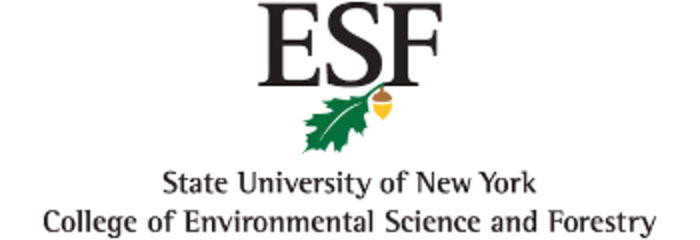2022 Best Online Bachelor's Degrees in Environmental Science
ON THIS PAGE
Accreditation Curriculum Careers FAQsThe list below highlights the best online bachelor’s degree programs in environmental science based on alumni annual salary. Our ranking methodology helps students weigh their potential return on investment for each individual program.
An online bachelor’s curriculum in environmental science equips students with the knowledge and expertise needed in the natural sciences to help advance their professional goals of protecting the environment. According to the Bureau of Labor Statistics (BLS), the median annual salary of environmental scientists and specialists in the US is $76,530.
Learn more about how we make money. ">ADVERTISEMENT
Online Environmental Science Bachelor's Degrees You May Be Interested In

Arizona State University

Southern New Hampshire University Online
Annual Tuition: $9,600
3 Programs (view all)

Liberty University
2022 Best Online Bachelor's Degrees in Environmental Science
| Rank | School | Salary Score | Median Starting Salary |
|---|---|---|---|
| Purdue University Global | $69,832 | ||
| Pennsylvania State University - World Campus | 97 | $62,018 | |
| Columbia Southern University | 96 | $60,105 | |
| University of Maryland Global Campus | 89 | $48,910 | |
| American Public University System | 85 | $45,245 | |
| University of Phoenix | 81 | $40,885 | |
| Southern New Hampshire University Online | 80 | $39,593 | |
| SUNY College of Environmental Science and Forestry | 74 | $35,332 | |
| University of Arizona | 68 | $31,709 | |
| Oregon State University | 67 | $31,447 |
2022 Online Colleges Offering Bachelor's Degrees
Ranking Details
#1 Purdue University Global
- Salary Score: 100
- Median Starting Salary: $69,832
- Locations: Indianapolis (IN)
- Accreditation: HLC
Purdue University Global offers an online Bachelor of Environmental Science Policy and Management. The 180-credit-hour, quarter-based curriculum covers research methods, environmental policy and law, environmental management, social responsibility, and environmental issues. Coursework prepares graduates for careers as environmental compliance inspectors, specialists, and scientists. Core courses include Politics of Managing the Environment, Socially Responsible Leadership, Economics of Environmental Management, and Constitutional Law.
Beyond academics, PSU offers multiple internship opportunities to students as well as preparation courses for both certification and licensure programs. PSU also offers a military discount on tuition to active-duty personnel and their spouses.
#2 Pennsylvania State University - World Campus
- Salary Score: 97
- Median Starting Salary: $62,018
- Locations: University Park (PA)
- Accreditation: MSCHE
Pennsylvania State University (PSU) - World Campus is a public, four-year institution offering an online Bachelor of Arts in Energy and Sustainability Policy and a Bachelor of Science in Energy and Sustainability Policy. Both programs require 120 credit hours, with students studying policies surrounding the use and sustainability of energy.
All these programs have the same general education requirements and prescribed coursework. In the Bachelor of Science program, students select additional coursework in areas closely related to the major. With the Bachelor of Arts, the focus is expanded to allow students to select a foreign language and take supporting course work in global culture and humanities.
Additionally, PSU offers virtual internships, certifications, and licensure preparation courses that can be beneficial when online students begin to apply for jobs after graduation.
#3 Columbia Southern University
- Salary Score: 96
- Median Starting Salary: $60,105
- Locations: Orange Beach (AL)
- Accreditation: DEAC
Columbia Southern University (CSU), a private institution, offers an online Bachelor of Science in Environmental Management. The 120-credit-hour curriculum covers environmental hazard mitigation and remediation while teaching students how to apply technology and theory to environmental issues and develop a strong environmentally-focused team. By gaining a in-depth knowledge in environmental theory and technology, CSU students graduate ready for professional-level jobs in the environmental sciences industry.
Among the services available to online students are the Success Center (providing assistance with writing and math), academic advising, remote proctoring, and digital library access.
#4 University of Maryland Global Campus
- Salary Score: 89
- Median Starting Salary: $48,910
- Locations: Adelphi (MD)
- Accreditation: MSCHE
The University of Maryland Global Campus (UMGC) — a large, public, four-year institution — offers a Bachelor of Science in Environmental Management with a concentration in sustainability or toxicology and hazard control. Students learn how to develop environmental management plans that comply with regulations in order to address air, water, and solid waste pollution. The 120 credit-hour curriculum includes courses in geographic information systems, environment and ecosystems, and human health.
The UMGC curriculum — designed with input from employers, industry experts, and scholars — combines theories with real-world applications, preparing graduates for career opportunities as environmental analysts, specialists, and program specialists. Students have access to tech support, academic tutoring, career advising, and networking.
#5 American Public University System
- Salary Score: 85
- Median Starting Salary: $45,245
- Locations: Charles Town (WV)
- Accreditation: HLC
American Public University System (APUS) is a private institution offering an online Bachelor of Science in Environmental Science, with concentrations in sustainability, fish and wildlife management, environmental technology and management, and regional and community environmental planning. This 120-credit-hour program instructs students in general biology, general chemistry, soil science, water science, environmental policy, and more through a blend of science, policy, and management. Coursework covers both the natural and social sciences. Additionally, students must complete a senior capstone course.
Active duty military members qualify for the Freedom Grant, an award created by APUS for active duty service members, National Guard members, and Reservists who are using tuition assistance to pay for their education.
#6 University of Phoenix
- Salary Score: 81
- Median Starting Salary: $40,885
- Locations: Nationwide
- Accreditation: HLC
The University of Phoenix (UP) is a private, for-profit online institution offering a Bachelor of Science in Environmental Science, which focuses on contemporary environmental problems. Students will analyze issues, propose solutions, and manage resource sustainability. The 120-credit program can be completed in four years with students typically taking one course at a time that can last up to seven weeks. Core courses include Environmental Sustainability; Environmental Issues and Ethics; and People, Science, and the Environment. To graduate, students must complete all program requirements, including 18 core courses, 12 general education courses, 15 credit hours of focused study, and 12 credit hours of electives. Graduates will find career opportunities as environmental analysts, specialists, and program specialists.
Through UP's Career Services for Life program, online students have lifelong access to career coaching, resume building, and interview preparation at no additional cost.
#7 Southern New Hampshire University Online
- Salary Score: 80
- Median Starting Salary: $39,593
- Locations: Manchester (NH)
- Accreditation: NECHE
Southern New Hampshire University (SNHU) is a private, nonprofit that offers a Bachelor of Science in Environmental Science and a Bachelor of Science in Geosciences. The programs are each 121 credit hours, preparing students for careers as environmental scientists and climate change advocates. SNHU’s environmental science program combines the natural and physical sciences, like biology, chemistry, and physics, with real-world scientific lab work. Alternatively, the geosciences program teaches a strong foundation in the physical sciences through a focus on geography, geology, earth systems science, physics, chemistry, and spatial awareness.
At SNHU, there are no set classroom times, meaning that you can set your own study schedule. Additionally, online learners have access to undergraduate research and learning opportunities through the SNHU Arboretum — a 25-acre forested wetland.
#8 SUNY College of Environmental Science and Forestry
- Salary Score: 74
- Median Starting Salary: $35,332
- Locations: Syracuse (NY)
- Accreditation: MSCHE
SUNY College of Environmental Science and Forestry offers an online Bachelor of Science in Sustainability Management that emphasizes practical solutions to key environmental dimensions of sustainability interdependent with socially and economically viable policies and practices. Students take courses in sustainable development, data analysis, sustainable energy policies, environmental justice, and managerial economics and must complete a sustainability management capstone course prior to graduating.
At SUNY, courses are 100% online. Through participating in group projects and online discussions, distance learning alumni are prepared for careers as environmental consultants, researchers and specialists, and forest rangers, among others.
#9 University of Arizona
- Salary Score: 68
- Median Starting Salary: $31,709
- Locations: Tucson (AZ)
- Accreditation: HLC
The University of Arizona (UA) — a public, four-year institution — offers a 120-credit hour online Bachelor of Science in Environmental Sciences in which students concentrate in either (1) soil, land, and water or (2) leadership, sustainability, and communication. The curriculum emphasizes a range of issues facing the environment, with major classes covering the fundamentals of sustainability, data analysis in environmental science, and assessment of contaminated sites. Students are required to complete an internship, teaching workshop, or independent study prior to graduating. Alumni often work in sustainable management or environmental restoration.
Distance learners at UA have access to an enrollment counselor, academic advisor, tutoring services, and a network of alumni mentors.
#10 Oregon State University
- Salary Score: 67
- Median Starting Salary: $31,447
- Locations: Corvallis (OR)
- Accreditation: NWCCU
Oregon State University (OSU) offers a variety of online environmental science bachelor's degrees that require 180 quarter credits to complete, equaling 120 semester credits. Students can pursue: (1) a Bachelor of Science in Environmental Sciences, which has seven possible concentrations; (2) a Bachelor of Arts or Science in Sociology, with a concentration in environmental and natural resources; or (3) a Bachelor of Science in Rangeland Science, with specializations in habitat management, pastoral systems of the world, sustainable livestock ranching, or sustainable rangeland ecosystem stewardship. OSU also offers a Bachelor of Science in Fisheries and Wildlife Sciences or Natural Resources.
Some additional options include science degrees in Geography and Geospatial Science, Horticulture, Rangeland Science, and Sustainability. Some of these have multiple concentrations to help students customize their studies to align with their desired professional niche in environmental studies.
Online Environmental Science Degree Overview & Career Information
Environmental science degrees are available at the associate, bachelor's, master's, doctorate, and certificate levels in both traditional and distance learning settings. The education level you'll need in environmental science will largely depend on the career you plan to pursue after graduating. Associate degree programs in environmental science concentrate on basic forestry, resources, and energy conservation. They take approximately two years to earn and are primarily used as a prerequisite for a bachelor's degree.
An accredited bachelor's degree program will require a four-year commitment and will include classes in political science, communications, business, basic math and science, the national park system, global warming, conservation efforts, and wildlife threats. The master's degree in environmental science is an interdisciplinary graduate program, focusing on the natural environment and environmental problems. Students in these programs learn about environmental threats in different regions, the natural science principles behind environmental problems, and policy issues surrounding environmental protection.
Online Bachelor's Degrees in Environmental Science
The online Bachelor of Arts in environmental science provides an interdisciplinary look at ecology, earth science, biology, geology, and other natural and social sciences. Students begin the degree with introductory courses in environmental science, which discuss basic scientific principles and major issues in environmental science today. These four-year programs explore the science of the earth from many different angles and often include coursework in pollution, water resources, ecosystems, and methods of protection, management, and restoration of environments. Other courses include public policy, climate change, and environmental law, as environmental scientists are often involved in crafting regulations surrounding environmental use.
Online bachelor's degrees also include an array of general education courses in topics like math, statistics, humanities, and other liberal arts areas. Communications courses, including English, history, and composition are important for environmental science students. Some schools allow students to earn credits by participating in internships with local environmental agencies and organizations.
Most entry-level jobs in environmental or green companies require at least a bachelor’s degree. Those with a bachelor's degree in environmental science can qualify for entry-level positions as environmental scientists and specialists. For those interested in environmental regulatory fields such as government agencies or consulting firms, it is imperative that geology courses are also part of the curriculum. While a bachelor's degree is sufficient preparation for most entry-level government positions, a master's degree is often necessary for employment in the private sector or for further career advancement.
The Importance of Accreditation
Accreditation is a process by which colleges, universities, and degree programs receive a comprehensive evaluation by an authoritative, independent agency. Legitimate accrediting agencies are recognized by the US Department of Education and will be found in the USDE database. While it isn't mandatory to attend an accredited school, doing so can provide you with a level of confidence that your degree program meets high academic standards and that it will be acceptable to graduate schools (should you decide to pursue a master's or doctoral degree), future employers, and licensing boards.
Accreditation is also important for students who wish to apply for scholarships or financial aid, as most organizations and lenders will only grant aid to students who attend an accredited school. Many professional licenses, such as a professional engineer license or a license to practice law, also require applicants to have a degree from accredited institutions. Visit the US Department of Education or the Council for Higher Education Accreditation for a list of accredited schools.
What Students Will Learn in an Online Environmental Science Program
Students who study environmental science will focus on current environmental issues, as well as the legal and financial restraints that govern the way environmental protection is approached politically. They will take a range of courses that explore scientific techniques and processes. A typical course may include the politics of energy, conservation biology, international economics, or the science of global warming. Undergraduate courses in environmental science often focus on practicality as opposed to theoretical approaches. Many schools offer internships as part of their degree, varying from field research to political internships. With more widespread acknowledgment of the impact of climate change, these opportunities are increasingly more present.
Most master's degree students who study environmental science already have some sort of specialized interest that led them to pursue a degree in the first place. Those who do not will likely go on to select one after exploring their interests through a variety of classes. The specialization they choose will affect the courses they take, their thesis and research options, any internships or volunteer opportunities they participate in, and the kinds of jobs available to them upon graduation.
The following list provides an example of some of the courses that students may take in an accredited undergraduate or graduate environmental science degree program:
- Chemistry or Geochemistry: All environmental science students will study chemistry. Most chemistry courses at the graduate level will focus specifically on geochemistry, or the major chemical processes that govern the way the environment functions. This class may also include an exploration of nuclear waste and the ways in which is it disposed.
- Climate Change: This is one of the most fundamental classes to a degree program in environmental science. Topics include weather patterns, the rhythm of the tides, and dendroclimatology.
- Energy and Sustainability: This class explores the ways in which environmental science work in conjunction with ecology, engineering, and even economics. Thermodynamics and the search for a sustainable fuel source are both important topics in the course.
- Environmental Measurement: Measuring rainfall, air pressure, and wind requires delicate instruments that must be handled properly; however, the main focus of an environmental measurement class for environmental science graduate students will be utilizing and reading satellite images that help track major environmental changes over time. This may be one of the more technical classes in the program.
- Geohydrology and Water Preservation: There are millions of people in the world who do not have access to clean drinking water, and because water is becoming increasingly polluted and scarce, many students who are studying environmental science will find that they have the option of taking a course in geohydrology or in water preservation.
- Nonfiction Environmental Writing: In order to express independent, original thoughts and research in this discipline, students need to understand the precise writing style expected of them. Place narration and proposal writing will be included.
- Population Geography: This class focuses on how the patterns of movement and settlement exert an influence on the environment and the lay of the land. A specialty under the heading of human geography, students will encounter issues like immigration and mortality rates.
Career Specializations for Environmental Science Graduates
Careers in environmental science focus on protecting the earth's resources by identifying things that are harming it and working to reverse environmental degradation. In order to help realize these goals, environmental scientists work in both public agencies and private firms in a variety of specializations. Some work for the government, testing and analyzing environmental resources and suggesting policy items and regulations. Others work as consultants, helping businesses comply with government regulations and develop sound environmental practices. Academic environmental scientists may work on more theoretical research and may apply a variety of disciplines to the study of the environment, such as math and chemistry.
Job opportunities for students of environmental science are growing both in the public and private sectors. Recent congressional stimulus and budget packages have allocated hundreds of millions of dollars to clean energy and environmental research, which creates many grants and programs for professionals. Many NGOs (non-governmental organizations) rely on the research and work of students of environmental science to publish reports, lobby governments and to help ensure their practices meet state and federal guidelines. Even energy companies hire many environmental science graduates to analyze aspects of their businesses. In the public sector, many environmental science majors go into teaching.
Entry-level environmental science positions in government and some private firms typically require an undergraduate degree in environmental science, earth science, or a related area. Master's degrees are required by some consulting firms and are often necessary for advancing to higher positions. Environmental scientists at colleges and universities will usually need a doctoral degree in an environmental science area. Mastering the technology used in environmental science and earning the available professional certifications can also help an aspiring environmental scientist land a job.
Environmental science is an interdisciplinary field that provides many opportunities for specialization. During their undergraduate or graduate degree program, students can tailor their studies to focus on political, scientific, natural, or social issues. Determining which specialty is right for you may require some research. Here is a list of some possibilities:
- Conservation Scientist: Conservation scientists often work as foresters who preserve and protect natural lands. They also manage habitats for various wildlife and protected lands. Licensing is required in some states in order to practice forestry.
- Environmental Advocate: Environmental advocates navigate the political process and work for non-profit or lobbying firms to help erect, amend, obstruct, or pass laws regarding the environment.
- Environmental Analyst: Analysts tend to work with a team helping to ensure that companies or organizations meet environmental regulations. In this case, it is beneficial to have certification in environmental risk management.
- Environmental Business Consultant: Corporations and businesses all over the world hire professionals who are dedicated entirely to improving a company's environmental record. They are hired as consultants to point out areas where corporations can decrease their carbon footprint and increase their positive impact on the environment.
- Environmental Scientist: The number of environmental science jobs increases each year. Many such scientists have PhDs, but earning a master's degree in environmental science is often the first step. Successful environmental scientists are problem solvers; they will be charged with finding solutions to pollution and other scientific problems, and they may spend many years working on one particular issue. Patience and the ability to work well with large groups is of the utmost importance for environmental scientists.
- Green Architect: Green architects assist other professionals in the architecture field by researching, assessing, and planning greener ways to build homes and structures using renewable energy and energy efficient strategies.
- Lawyer: Lawyers must have a Juris Doctorate degree, which take three years to earn, but combining a law degree with an environmental science master's degree will lead to a whole new array of opportunities. Students will have a unique mastery of environmental law that will enable them to work in top positions and make effective, positive changes.
- Political Advocate: A political advocate can work for a government organization but will more often work for a third-party lobbyist organization. Most advocates are dedicated to a specific issue, and they seek to garner more public interest that will aid them in meeting their end goals. They also work with government agencies to encourage new legislation or better enforcement of laws. A number of political environmental groups employ graduates of master's in environmental science programs.
- Renewable Energy Consultant: These consultants help companies and other groups find ways to cut their carbon footprint and assess their levels of waste.
- Surveyor, Cartographer, and Mapping Technician: These professionals measure and map the earth’s surface on land and water. They are trained to write descriptions for legal, construction, and scientific purposes.
Frequently Asked Questions About Environmental Science Degrees
How much can I make with an online degree in environmental science?
Data from the Bureau of Labor Statistics shows environmental scientists and specialists earned an average annual salary of $73,230 in 2020. However, there is a wide range of salaries for environmental science professionals depending on sector and experience. For example, the highest-paying industry for environmental scientists and specialists is the federal government with an average annual salary of $103,180.
Do I need a degree to work in environmental science?
Students' long-term career goals will influence which level of education they wish to pursue. Entry-level environmental science positions at the government level, as well as at some private firms, typically require a bachelor's degree in environmental science, earth science, or a related area. Master's degree are often necessary for advancement to higher positions, especially in consulting firms. To teach and/or conduct research at colleges and universities, an environmental scientist will need a doctoral degree in an environmental science area.
What is the demand for positions within the environmental science field?
A number of emerging issues, such as the evolving effects of climate change and the dangers of hydraulic fracturing (fracking), are expected to drive above-average growth (8%) in demand for environmental scientists and specialists over the next eight years. Professionals with the right combination of education and experience will thus be eligible for many employment opportunities across a range of disciplines in the field of environmental science.
Why Trust Us?
27 Data Researchers
60,000 Degrees Researched Annually
20,000 Hours Spent on Research Annually
Launching Rankings Since 2009
Related Articles
2023 Best Online GIS Degrees
Explore the best online geographic information systems (GIS) degrees at the bachelor's level.
By OnlineU Staff Writers | 12/16/2022









